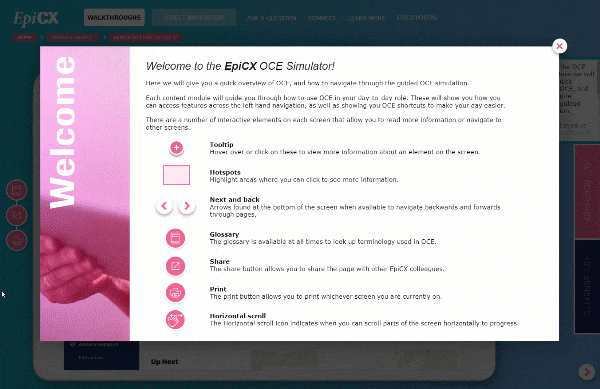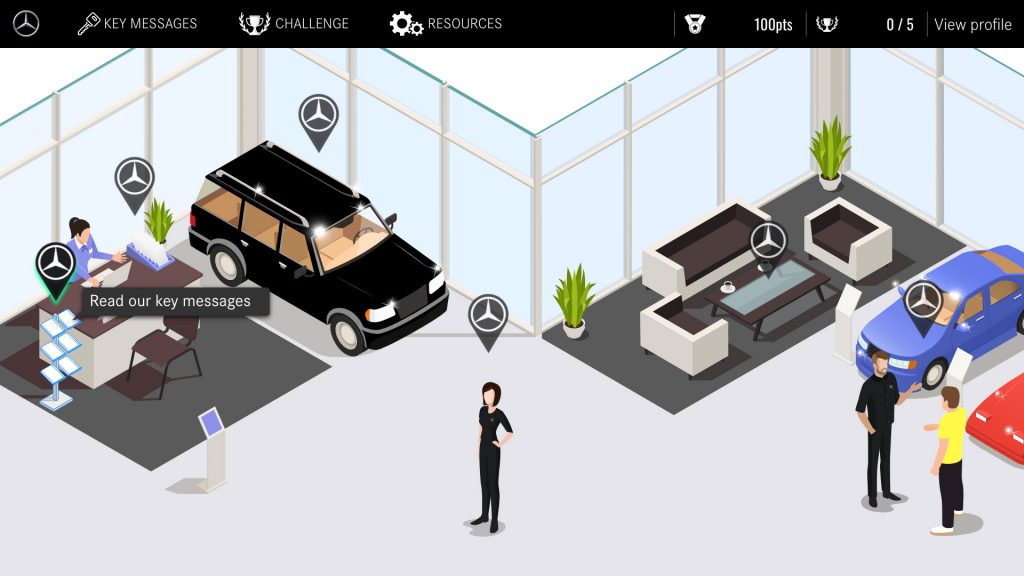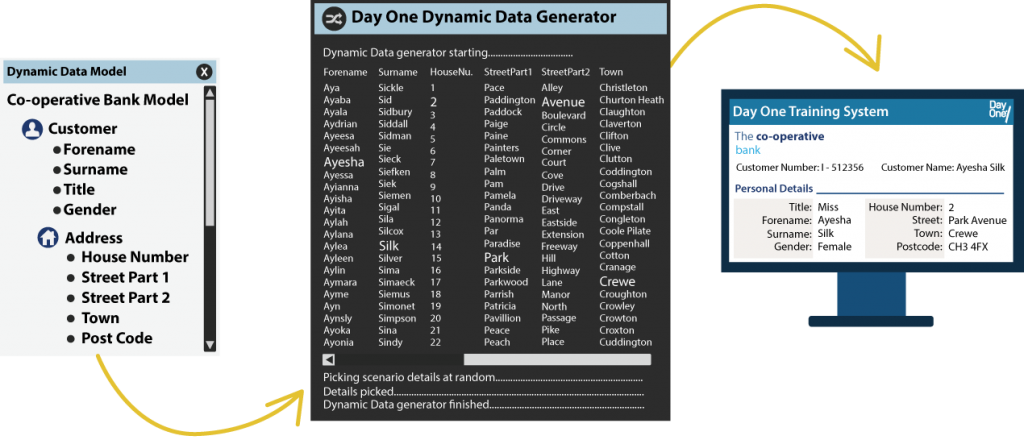Simulation Training
Our bespoke simulation training creates a true to life, immersive learning experience. This kind of practice is far more effective for employee onboarding and rapid skills development than lectures, text or audio-visual content.














What is Simulation Training?
Simulation training is a mode of learning that uses technology to mimic real-world scenarios. The learner can practise skills and activities in a safe environment, becoming better prepared for real-life situations.
For any role
Also known as simulation-based training, the goal is to create an immersive learning experience that will accelerate knowledge retention and skills development.
Training for any type of role or skill can be improved with simulations, including Business Leadership, Product Management, Sales & Customer Service, Health & Safety Process, Software System Onboarding and more.
No headset required!
While augmented or virtual reality is often used for practising manual tasks, such as driving or flight, computer-based simulations are useful for software onboarding or soft skills development through interactive scenarios.
With no AR eyewear or VR headsets required, computer-based simulations can be low-cost and accessible, even when rolled out at scale for large organisations.
Immersive Learning
If it looks like a lion, walks like a lion and roars like a lion… then it may be a lion simulator! Many of the clients we work with on simulation based training have one or more unique desktop systems that they need staff to be whizzes at using.
We make Learning By Doing possible when it’s not appropriate to practise in the live working environment.
Our system simulations always feel relevant, different and fresh – providing lifelike interactions, multiple branching scenarios, and endless variation.
Software system simulations
Day One can create software system simulations that closely match the look, feel and functionality of any program, so trainees can learn and practice skills in an immersive learning environment that’s as true to life as it gets.
We can introduce realistic scenarios to work on and use our ‘Dynamic Data’ system to provide randomly generated ‘customer’ details to work with.

Ongoing support for rapid skills development
Our simulation training systems are not a set and forget solution that we deploy, then leave you to manage.
We create easy to use client user guides in the way of a content index and manuals, video tutorials and more. We also provide ongoing support post-delivery to ensure you are able to make the most of your system simulations and see maximum training ROI.
Below is an example of a video guide created for one of our clients to help them start using their simulation training software for rapid skills development:

Soft skills - no problem
Our unique development environment allows us to create elearning simulations that mimic any scenario. Soft skills training for sales and customer service roles can be made easy and fun with interactive, games-based learning.
And because it’s all compatible with your learning management system, every element of a trainee’s performance on the simulated system can be tracked and scored.
Dynamic Data for simulation based learning
‘Dynamic Data’ is a special program written by Day One, that allows our simulation based learning to be populated with millions of ever-changing customer details and scenarios.
It effectively mirrors the real world, where every customer is unique and requires a tailored solution to their problem. This ensures trainees never get the same training scenario twice, and it also improves their ability to think on their feet!

To make the scenarios unbelievably accurate, our developers spend lots of time getting to know your business and your products / services. This gives us in-depth knowledge of your processes and the way different issues are resolved.
By ensuring what information goes into the database is spot on, we know that all the customer scenarios our Dynamic Data produces could actually happen for real. And it’s all SCORM compliant too, meaning that most of our simulations can work within any modern learning management system.
Could our simulation training solutions help your staff learn or improve their use of your software and systems?
Simulation training examples
A few of our case studies showcasing bespoke simulation training examples:

eLearning & Software Simulations
Types of Simulation
Customer Service Simulations
Help employees practise handling customer enquiries, complaints, and other interactions to improve customer satisfaction and service quality. Customer service simulations for rapid soft skills development.
Management Simulations
Developing leadership and decision-making skills, these simulations place participants in management roles where they must navigate complex business challenges.
Interactive System Simulations
Software simulations where participants interact with a virtual business environment on their computers, making decisions and observing the outcomes.
Sales Simulations
Improve sales techniques and customer interactions, these simulations often involve role-playing sales scenarios, from initial contact to closing a deal.
Role-playing Simulations
Employees take on specific roles within a business scenario to practise and develop their skills in areas such as negotiation, customer service, sales, and leadership.
Supply Chain Simulations
Focused on the logistics and supply chain management, these simulations allow participants to manage inventory, production schedules, and distribution networks.
Business Simulations
Competitive scenarios where participants manage virtual companies and make decisions about production, marketing, finance, and other business functions to achieve specific goals.
Soft Skills Simulations
Designed to improve interpersonal skills, such as communication, teamwork, conflict resolution, and leadership, often using scenario-based training.
Need help with simulations for Learning By Doing?
Why not contact us for an informal chat about how we could help you meet your training and simulation needs and make learning by doing part of your L&D toolkit?


















